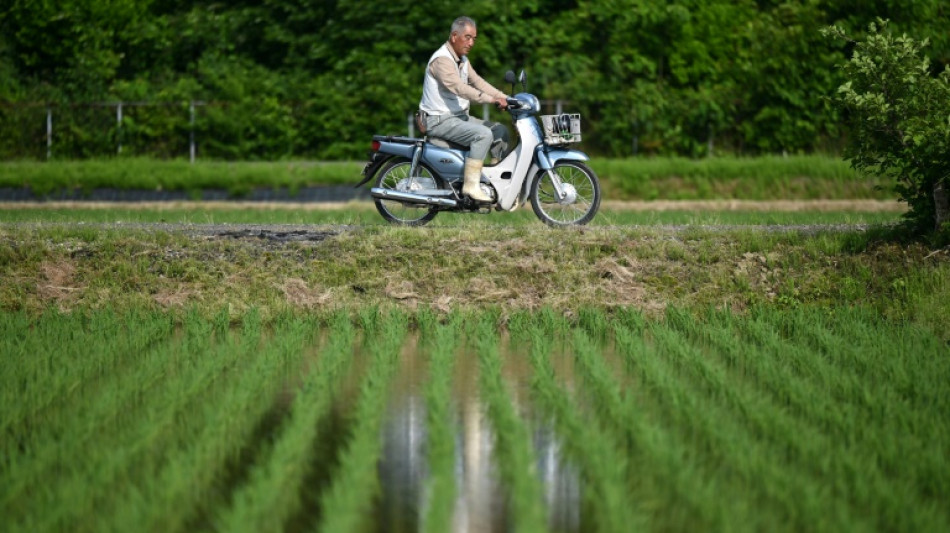
-
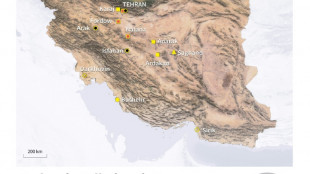 Iran's nuclear programme: the key sites
Iran's nuclear programme: the key sites
-
In a Pakistan valley, a small revolution among women
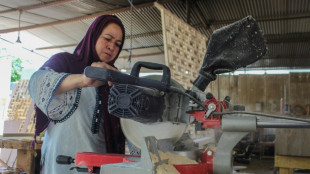
-
 Anthropic says looking to power European tech with hiring push
Anthropic says looking to power European tech with hiring push
-
Bolivia police officer blown up by pro-Morales demonstrators

-
 'We're done with Teams': German state hits uninstall on Microsoft
'We're done with Teams': German state hits uninstall on Microsoft
-
Rescue teams comb site of Air India crash that killed at least 265

-
 Senior US Democrat condemns Israel's 'reckless escalation'
Senior US Democrat condemns Israel's 'reckless escalation'
-
With Kane's curse broken, Bayern eye Club World Cup treasures

-
 Club World Cup a test of Chelsea's elite credentials
Club World Cup a test of Chelsea's elite credentials
-
Bath seek end to Premiership drought against old rivals Leicester

-
 Philippines ex-leader Duterte seeks interim release from ICC
Philippines ex-leader Duterte seeks interim release from ICC
-
Judge blocks Trump's use of National Guard in protest-hit Los Angeles

-
 Attacking Iran, Israel brazenly defies 'man of peace' Trump
Attacking Iran, Israel brazenly defies 'man of peace' Trump
-
As NATO ups defence spending, can Europe produce the weapons?

-
 From samurai threat to Asian Games as Japan cricket fights obscurity
From samurai threat to Asian Games as Japan cricket fights obscurity
-
Meta makes major investment in Scale AI, takes in CEO

-
 Betraying the revolution: Cuban students reject dollarization
Betraying the revolution: Cuban students reject dollarization
-
Oil surges, stocks fall on Middle East fears as Israel strikes Iran

-
 Second man charged over shooting of Colombia presidential candidate
Second man charged over shooting of Colombia presidential candidate
-
Israel launches strikes on Iran
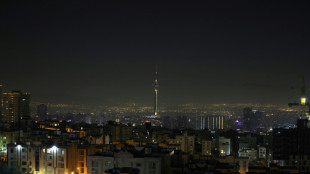
-
 UN summit to end with boost for ocean conservation
UN summit to end with boost for ocean conservation
-
Israel launches 'preemptive' strikes on Iran
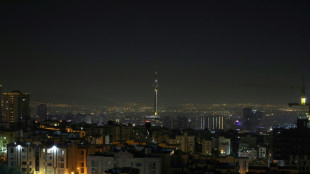
-
 Ukrainians beg for news of missing soldiers as prisoners return
Ukrainians beg for news of missing soldiers as prisoners return
-
Spaun seizes US Open lead as Scheffler, McIlroy struggle

-
 Los Angeles Grand Slam Track meeting cancelled: official
Los Angeles Grand Slam Track meeting cancelled: official
-
Scheffler hopes to solve sloppy bogeys, silly mistakes after 73

-
 Club World Cup marks 'new era' for football: Infantino
Club World Cup marks 'new era' for football: Infantino
-
Koepka gets Oakmont scolding and leaps into US Open title hunt

-
 Trump warns Israeli attack on Iran 'could very well happen'
Trump warns Israeli attack on Iran 'could very well happen'
-
Club World Cup a chance for MLS to shine: Giroud

-
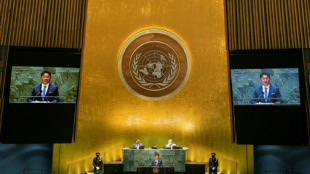 UN General Assembly calls for Gaza ceasefire, pressure on Israel
UN General Assembly calls for Gaza ceasefire, pressure on Israel
-
'Suck it up' - SGA says fatigue can't be a factor in NBA Finals

-
 Bolivia police officer blown up by pro-Morales demonstrators: govt
Bolivia police officer blown up by pro-Morales demonstrators: govt
-
Frank faces pressure to make instant impact at Spurs

-
 Im grabs share of US Open lead as Pavon attacks, Scheffler struggles
Im grabs share of US Open lead as Pavon attacks, Scheffler struggles
-
BTS fans gather for K-pop supergroup's annual celebration

-
 Northern Ireland hit by fourth night of clashes
Northern Ireland hit by fourth night of clashes
-
Thunderstorms may rain on Trump's military parade

-
 Manhandling of US senator ups California tensions with Trump admin
Manhandling of US senator ups California tensions with Trump admin
-
Spaun takes US Open nervous energy to record Oakmont start

-
 Race ban would be his own fault, Russell warns Verstappen
Race ban would be his own fault, Russell warns Verstappen
-
Double bogey confidence boost helps Lawrence shine at Open

-
 Bolt beams as Alfred, Duplantis and Warholm light up Oslo Diamond League
Bolt beams as Alfred, Duplantis and Warholm light up Oslo Diamond League
-
Hamilton slams Italian media speculation on Ferrari and Vasseur

-
 Warholm sets world best in 300m hurdles in Oslo Diamond League
Warholm sets world best in 300m hurdles in Oslo Diamond League
-
Duplantis dominates pole vault at Oslo Diamond League

-
 Tottenham hire Brentford's Frank as new manager
Tottenham hire Brentford's Frank as new manager
-
Alfred scorches Diamond League 100m in Oslo

-
 Reed makes only fourth albatross in US Open history
Reed makes only fourth albatross in US Open history
-
India plane crash: What we know
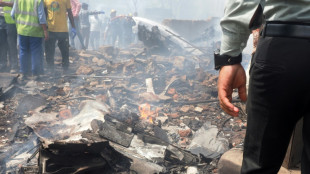

Rice prices Japan's hot political issue, on and off the farm
All is calm at Satoshi Yamazaki's rice farm, with its freshly planted rows of vivid-green seedlings, but a row over the cost of the staple in Japan is threatening to deal the government a blow at the ballot box.
Shortages of the grain caused by a supply chain snarl-up have seen prices almost double in a year, fuelling frustration over inflation -- and voters could let their anger be known in upper house elections due next month.
To help ease the pain for consumers and restaurants, the government started tapping emergency stockpiles in March, having only previously done so during disasters.
Yamazaki, who grows about 10 percent of his rice organically using ducks to eat pests, said he understands high prices are "troubling" for ordinary people.
But he stressed that thin profits are a concern for many of those who produce it.
"There's a gap between shop prices and what farmers sell rice for to traders and the like," he told AFP in the northern Niigata region.
"Not all the money paid at shops becomes our income," said Yamazaki, a 42-year-old father of seven.
A mosaic of factors lies behind the shortages, including an intensely hot and dry summer two years ago that damaged harvests nationwide.
Since then some traders have been hoarding rice in a bid to boost their profits down the line, experts say.
The issue was made worse by panic-buying last year prompted by a government warning about a potential "megaquake" that did not strike.
- 'Old' rice -
Meanwhile, the rising price of imported food has boosted the popularity of domestic rice, while record numbers of tourists are also blamed for a spike in consumption.
Farm minister Shinjiro Koizumi has pledged to cut prices quicker by selling stockpiled rice directly to retailers -- attracting long queues to some shops.
It appears to be working: the average retail price has edged down for a second week to 4,223 yen ($29) for five kilograms (11 pounds), down from a high of 4,285 yen in May.
That hasn't stopped opposition politicians -- with an eye on the elections -- and online critics branding the reserve rice "old", with some likening it to animal feed.
But analysts also blame Japan's decades-old policy of cutting rice-farming land. The policy was introduced to support prices that were being hit by falling demand brought about by changes in the Japanese diet.
Under the 1971 policy, farmers were told to reduce the amount of space used to grow the grain in favour of other crops.
That saw the amount of land used for rice paddies -- not including for livestock feed -- plunge below 1.4 million hectares (3.5 million acres) in 2024, from a peak of 3.3 million hectares in 1960.
While the policy was officially abolished in 2018, it has continued in a form of incentives pushing farmers towards other commodities like soybeans.
Adding to the crisis is Japan's ageing population. Many rice farmers are old and their children have no interest in taking over.
Eighty percent of rice farmers are part-time with less than two hectares of fields but they account for only 20 percent of production, said agronomy expert Kazunuki Oizumi, professor emeritus of Miyagi University.
Their main revenue comes from other jobs or pensions, he added.
- Agriculture 'destroyed' -
Toru Wakui, chairman of a large-scale farm in the northern Akita region who has for decades fought against the acreage reduction, said Japan should "seek an increase in rice production and exports to foreign markets".
"If you only think about the domestic market while increasing output, of course prices will fall," he told AFP. "We need to look for markets abroad."
"The 55 years of acreage reduction destroyed Japan's agriculture," said Wakui, 76, who urged Koizumi in a letter last month to "declare an expansion in rice production".
He also said Japan should consider a scheme to help young people start agriculture businesses without the burden of initial investment in fields and machinery, by involving other sectors including banks and trading companies.
Public support for Prime Minister Shigeru Ishiba's government has tumbled to its lowest level since he took office in October, which local media say was partly caused by the surge in inflation and soaring rice costs.
He has told parliament that increasing production is "an option" to temper prices, but said food security and the livelihood of producers was also important.
For the farmer Yamazaki, "wanting cheap rice with high quality" is a pipe dream.
"We farmers are a little baffled by the limelight that suddenly shifted to us," he said.
"But I think it's a good opportunity for the public to think about how rice is produced."
H.E.Young--AMWN